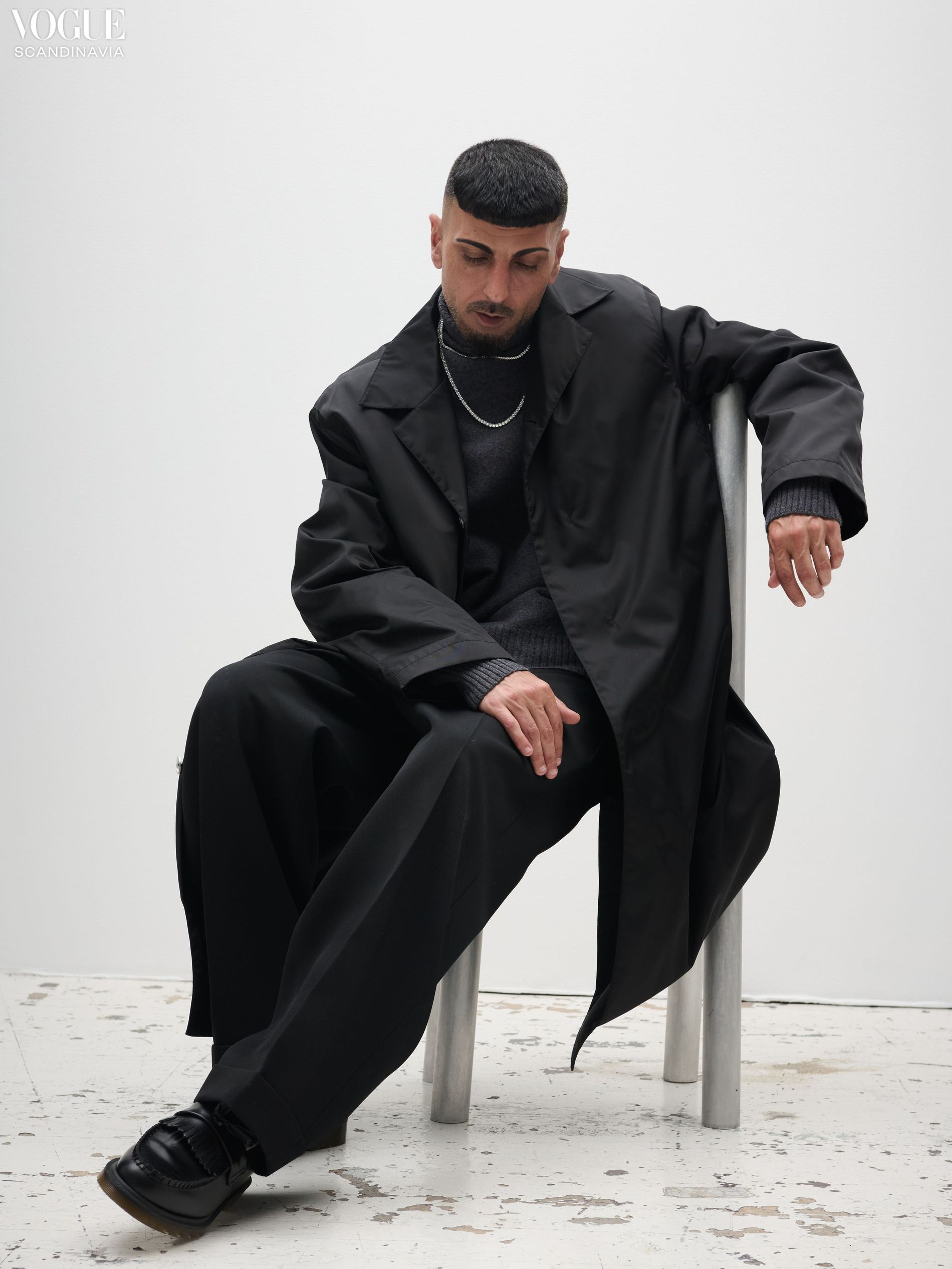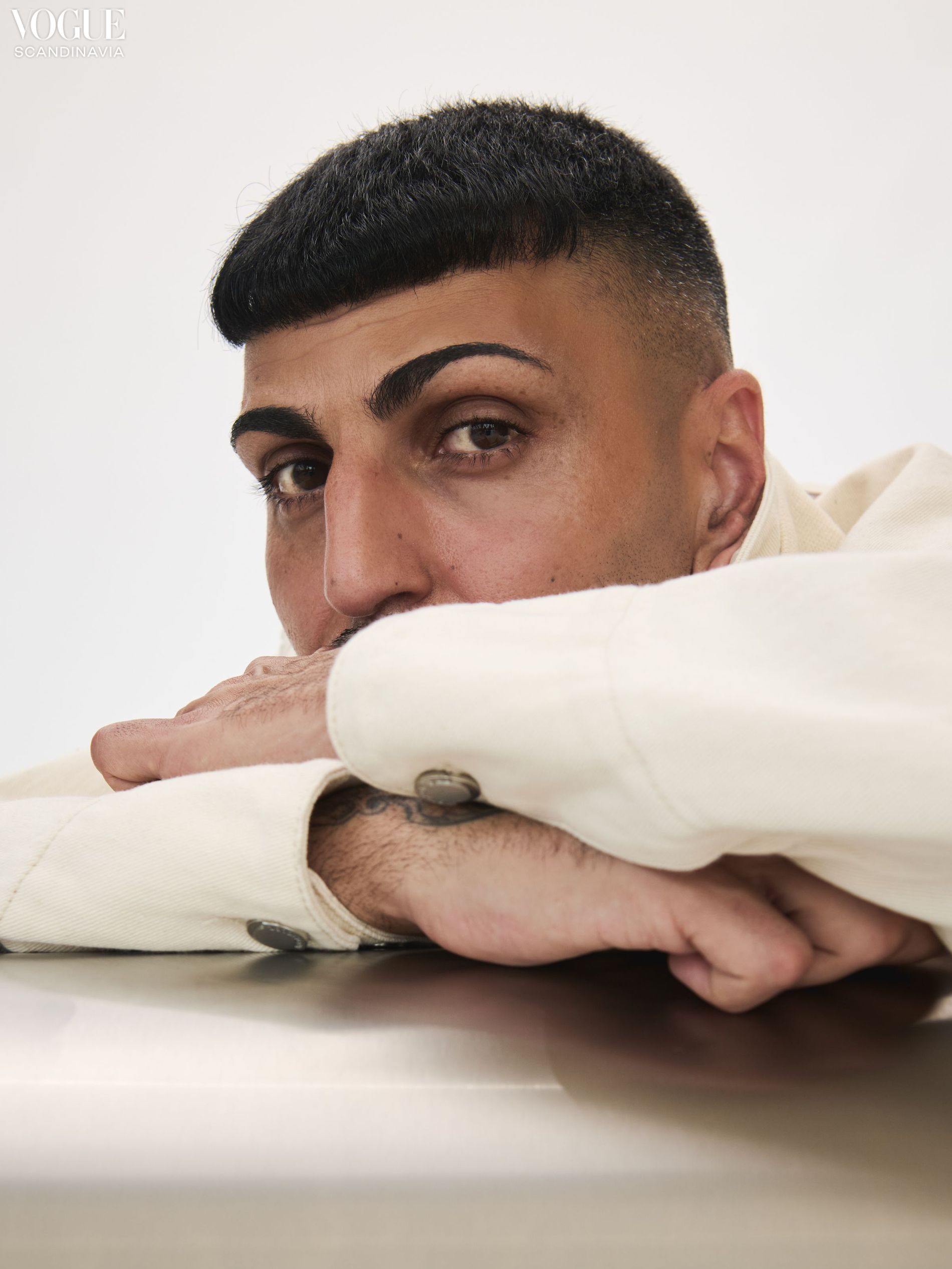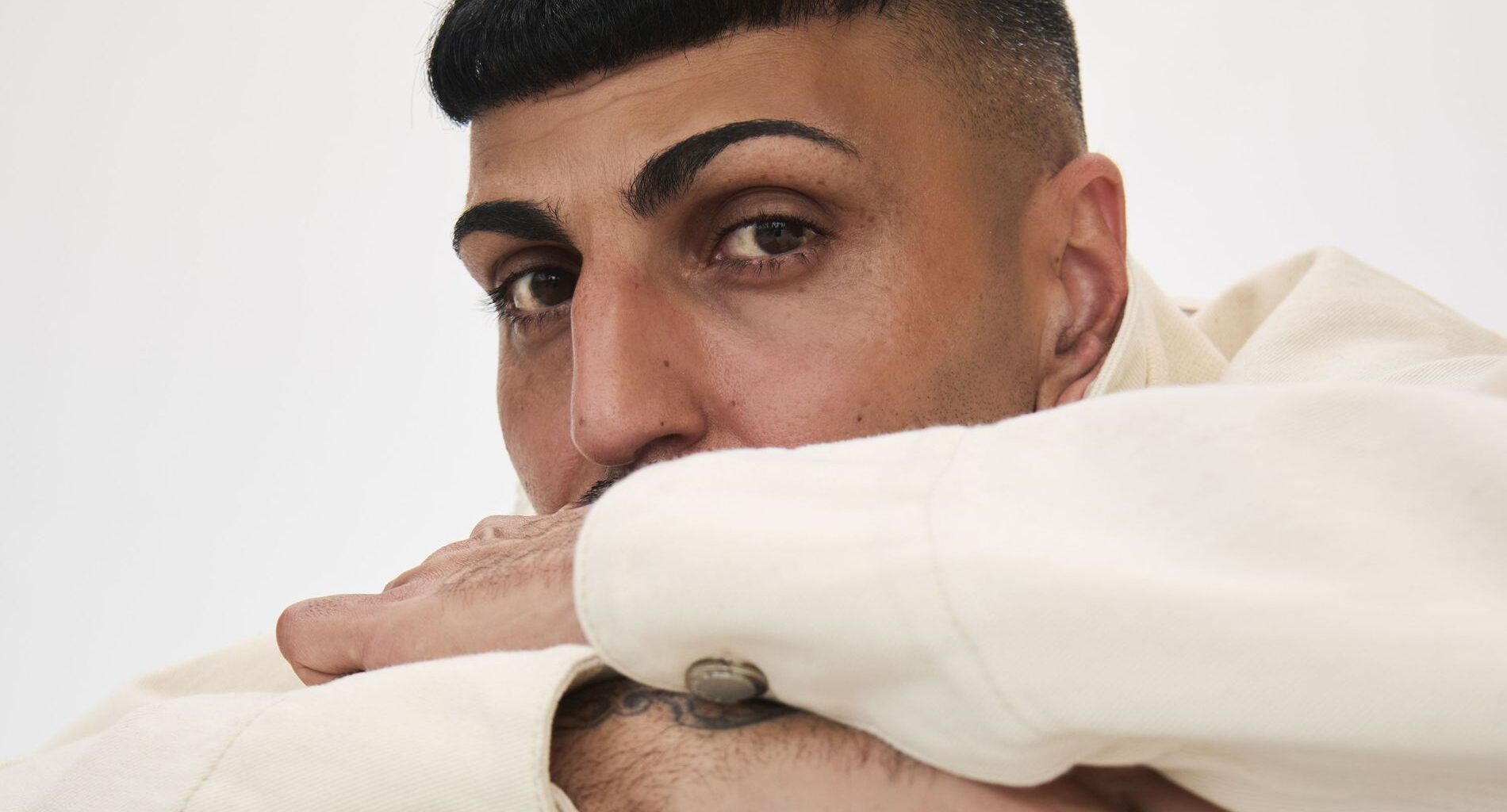Ahead of Sivas’ double bill of shows on home turf this weekend, Vogue Scandinavia sat down with the Danish-Iranian rapper to talk identity, fatherhood, and finding tenderness in hip hop
Rapper Sivas Torbati isn’t trying to be radical. His compass points closer to home, to carve out a better future for his daughter. The Danish-Iranian artist stands as proof that between sharp angles and tough words, hip hop carries depth, a pulse of tenderness beneath its steel.
Through his mix of Danish, English, slang dialect and Middle Eastern inflection, Sivas has created a musical dialect that speaks of both duality and freedom. Beyond the bling and bravado lies sentiment and poetry – a mix of longing and rootlessness that opens borders and builds connection. Sivas moves between worlds: rhythm and belonging, heritage and reinvention.

Photo: Angela Djekic
When his debut track ‘d.a.u.d.a.’ was released in 2013, it reshaped Danish music. “I wasn’t trying to be radical,” he says. “I was just making sure my daughter, who had just been born, would have a good future and an easier life than I’d had.” What emerged was something real, emotional, and charged with duality. “I was making a sound that mixed my reality with my dreams – something I felt was missing in Danish culture. Maybe that’s why people called it new.”
At a time when Danish hip hop often mirrored American trends, Sivas’s sound felt grounded in local truth. Language has always been his medium of freedom. He grew up speaking Persian at home, Arabic in the neighbourhood, Danish at school, and English on the radio – a polyphony that shaped both his identity and his art. “Language isn’t just words, it’s rhythm and pulse. When I mix them, I create a style that sounds like me, not like a system telling me how to sound.” Speaking the way people actually speak – blending slang, sentiment, and culture – is, for him, both an act of resistance and a declaration of freedom. “I’ve always dreamed of feeling free,” he says. “I found that freedom by writing lyrics as if I were talking to my friends and family.”
Related: The Hives tap Tiger of Sweden to imagine “Electric Funeral Cowboy” looks for their latest tour
Always present in his work are the realities of immigration and assimilation, balanced by a celebration of cultural multiplicity. His music reflects both the loss of heritage and the making of a new identity – one formed within a country not entirely his own. There’s a constant tension between belonging and distance, between the language of the streets and the stillness of introspection. It’s within this space that his sound continues to evolve.
Sivas mirrors a generation unafraid of complexity and embodies a new Nordic voice: one that refuses to flatten identity into simplicity. His music reads as much like a diary as a documentary, capturing what it means to grow up between cultures and still find belonging.
Sivas
In 2022, the Danish Music Awards honoured his “groundbreaking” contribution to music – a label he meets with humility. “We were more about building bridges than breaking ground,” he reflects. “I opened a door that should’ve been open all along.” His work has always explored multiplicity – the ability to belong to more than one culture and speak more than one truth. “Denmark had a hard time understanding that many realities can exist at once,” he says. “That you can be born in Iran, grow up in Copenhagen, and still feel Danish at heart.”
That visibility has shaped both his artistry and his purpose. “It meant everything, because I came from a place where people weren’t seen,” he says. “Visibility matters when you’ve grown up feeling invisible.” But recognition also brought expectation. “I became a mirror for some, and my biggest wish was that they’d think, ‘If he can make it, then I can too.’”

Photo: Angela Djekic
A decade later, his influence is visible in the new wave of artists shaping Danish culture through plural identities and unapologetic voices. “Now I see young people – mixed colours and races, different accents and stories – and they’re not afraid to take up space. That makes me proud,” he says. “It’s beautiful. But we still break ground so that their place doesn’t always have to be defended.”
In 2024, Sivas brought hip hop to one of Denmark’s most prestigious stages – the Opera House – in a performance that was both symbolic and subversive. “Bringing hip hop into a space where musicians usually chase perfection felt bold, maybe even risky,” he says. “But it was important to show that our voices belong there too. Hip hop has always been literature and poetry, just written on beats instead of books.”
Sivas
Today, his lyrics explore love, loyalty, and self-knowledge with growing intimacy. “My principles are simple: honesty, love, and sincerity,” he says. “You need to know your direction, otherwise the world will steer you. I don’t rap to fill silence – I rap to understand myself.”
Fatherhood sharpened that purpose. “I no longer write music just for my friends; I write for my daughter,” he says. “Because I’ve learned that hardness without love only breeds fear. There’s already too much hate and hostility in the world – I don’t want to add to that.” That tenderness runs through his later work: the sound of someone who’s learned that vulnerability can be stronger than force.
If he’s called the godfather of modern Danish hip hop, Sivas prefers to see legacy not as status but as spark. “Legacy isn’t money or awards – it’s energy,” he says. “If someone can make music today because I dared to do it yesterday, that’s my legacy. I’d rather set things in motion, inspire someone to explore what’s in their heart, than stand as a statue in a museum.” His words linger, echoing the ethos of a generation that measures impact not in fame, but in feeling.
After more than a decade in music, what drives him remains unchanged. “There’s still something inside me that needs to come out,” he says. “I’ve said a lot, but not everything. There are still new poems, new melodies, new truths to find. As long as I’m breathing, I’ll try to speak them out loud.”
“There’s a stillness to it now,” he adds. “For me, creation isn’t about ambition anymore, it’s about alignment. I want my work to keep expanding what it means to be Danish, what it means to belong, and how identity can sound when it’s freed from borders. Between beats and belonging, I’ve found a voice that feels both personal and universal, a rhythm that carries the story of a generation still redefining what home can mean.”
Photographer: Angela Djekic
Creative Producer: Fatimah Gabriella
Stylist: Fatimah Gabriella
